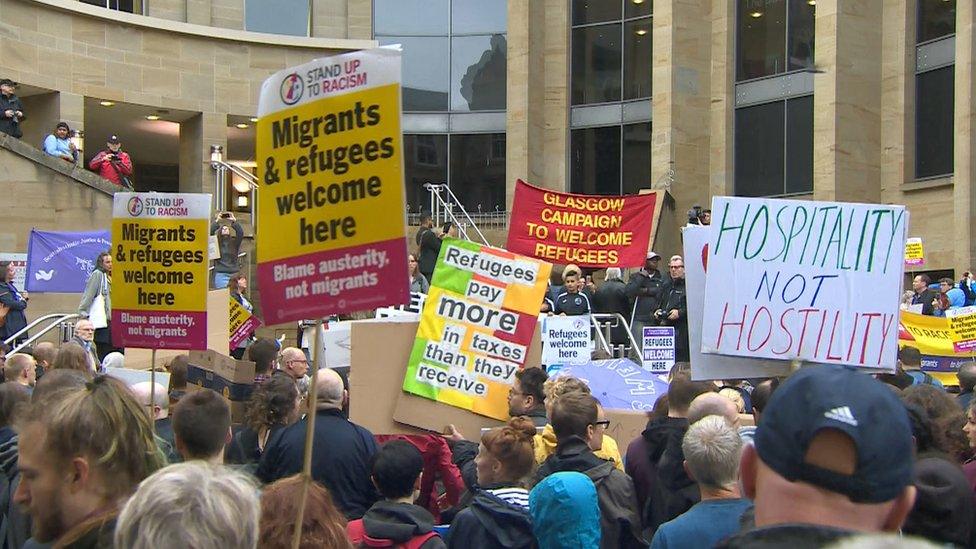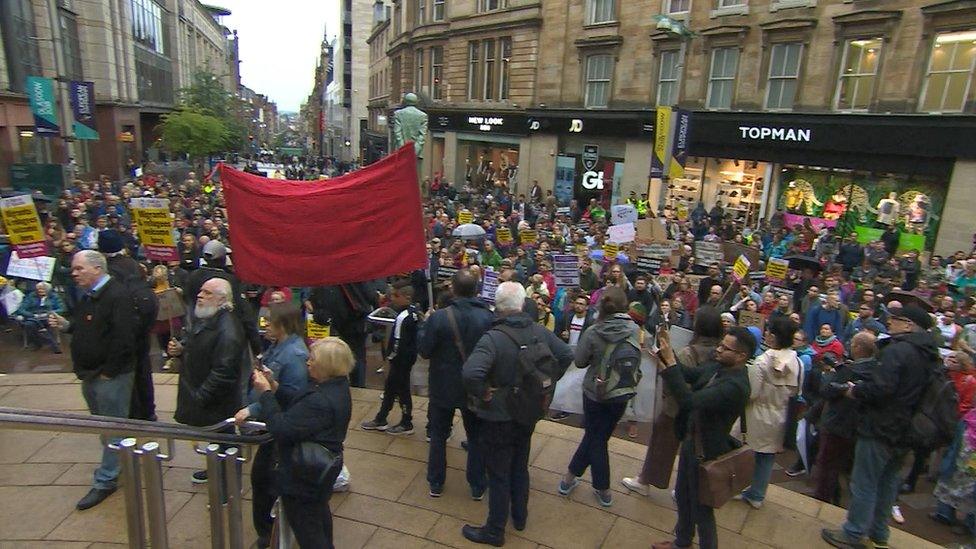Council taskforce to help asylum seekers facing eviction
- Published

Protestors gathered outside Buchanan Galleries
Glasgow City Council has set up a taskforce in a bid to help up to 300 asylum seekers facing eviction.
The move comes as a lawyer claimed Home Office contractor Serco planned to "act unlawfully" after families were notified their locks would be changed.
Hundreds of people staged a protest against the plans outside the city's Buchanan Galleries on Tuesday.
Serco said it has been providing free housing for former asylum seekers with no right to stay in the UK.
The council taskforce will work with Third Sector partners and legal charities to offer advocacy and support services to those affected.
Council leader Susan Aitken and chief executive Annemarie O'Donnell have also written to the Home Secretary, warning of a "humanitarian crisis".
On Monday, Serco - which provides accommodation for asylum seekers on behalf of the Home Office - issued six of those affected with a notice that their locks would be changed within seven days.
Historically, lock changes have not been used for those who remain in asylum accommodation despite the Home Office ruling they will not be granted refugee status and withdrawing their funding and support.
'Vulnerable families'
Mike Dailly, of Govan Law Centre, said his solicitors were working with MPs, the local authority and charities to identify those affected with a view to raising legal proceedings to prevent summary evictions.
He said: "These are very vulnerable families living in our city and they deserve full legal protection to ensure that due process is being followed.
"We have a number of our senior lawyers looking at this right now.
"We are convinced that Serco are proposing to act unlawfully."

Hundreds of people joined the demonstration
Mr Dailly pledged to take cases before the courts.
He added: "This is a complex area of law and it's very unlikely vulnerable people can just be summarily evicted in the way Serco propose.
"Scots common law has long since prohibited eviction without due process of law against residential occupiers.
"In Scotland, it is generally necessary to obtain a decree for ejection from the court as opposed to taking the law into you own hands - known as summary eviction or eviction brevi manu - which is generally a criminal offence and a civil wrong."
'Imminent risk'
The lock change plan has sparked condemnation from members of all major political parties, except the Conservatives, with councillors and MPs teaming up to write to the Home Secretary calling for a U-turn.
The letter from Glasgow City Council leader Susan Aitken warned that those evicted were more likely to become homeless than leave the UK and said it risked creating a "humanitarian crisis" in the city, placing people at "imminent risk of significant harm".
Serco said it had been providing housing free of charge and without recompense from the Home Office, in some cases for months, for ex-asylum seekers with no right to stay in the UK.
The company said it was sympathetic to those affected but believed it had been "more than supportive" and had started legal proceedings for repossession as these residents "no longer have any right to continue to live in the property we provide".
- Published30 July 2018
